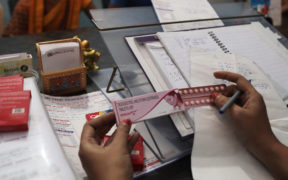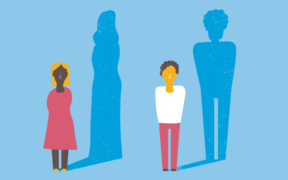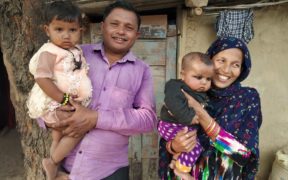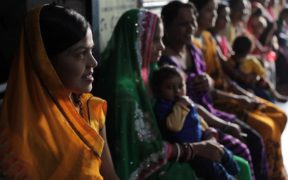Tag:
India

With India’s adolescent and youth population on the rise, the country’s government has sought to address this group’s unique challenges. India’s Ministry of Health & Family Welfare created the Rashtriya Kishor Swasthya Karyakram (RKSK) program to respond to the critical need for adolescent reproductive and sexual health services. Focusing on young first-time parents, the program employed several strategies to strengthen the health system to respond to adolescent health needs. This required a trusted resource within the health system who could approach this cohort. Community frontline health workers emerged as the natural choice.

Knowledge SUCCESS last week announced four winners from a field of 80 contestants in "The Pitch," a global competition to find and fund creative knowledge management ideas for family planning.

Le 8 avril, Knowledge SUCCESS & FP2030 ont organisé la troisième session de la troisième série de conversations de la série Connecting Conversations, “ À quoi ressemble la mise en œuvre d'une approche adaptée aux adolescents ?” Cette session s'est concentrée sur les différences entre la mise en œuvre d'une approche systémique par rapport aux approches déconnectées et les stratégies de responsabilisation dirigées par les jeunes, nécessaires pour garantir que les services répondent aux adolescents.

Today, Knowledge SUCCESS is pleased to announce the first in a series that documents “What Works in Family Planning and Reproductive Health.” The new series will present, in depth, essential elements of impactful programs The series uses innovative design to address some of the barriers that traditionally discourage people from creating or using documents that share this level of detail.

Despite the widely agreed importance of measuring QoC, client perspectives are often missing from routine monitoring and studies. The Evidence Project has developed a package of validated, evidence-based tools and training materials to support governments and implementing partners in measuring and monitoring QoC. Measuring QoC from the clients’ perspective will help programs celebrate successes, target areas for improvement, and ultimately improve uptake and continuation of voluntary contraceptive use.

FP2020's webinar on digital health for family planning during the COVID-19 pandemic brought together presenters from a variety of projects, all of which are leveraging technology to meet the needs of their clients in new ways. Missed the webinar? Our recap is below, and so are links to watch for yourself.













